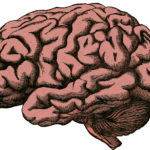Unlocking the Mysteries of Hypnosis: A Voyage into the Mind’s Potential
 Hypnosis has intrigued humanity for ages, from its mesmerizing stage performances to its therapeutic applications in clinical settings. This article delves into the captivating world of hypnosis, examining its history, science, and its profound impact on personal growth and well-being.
Hypnosis has intrigued humanity for ages, from its mesmerizing stage performances to its therapeutic applications in clinical settings. This article delves into the captivating world of hypnosis, examining its history, science, and its profound impact on personal growth and well-being.
The Historical Journey of Hypnosis
The history of hypnosis stretches back to ancient times but gained notable attention in the late 18th century with Franz Mesmer. Mesmer, an Austrian physician, introduced “mesmerism,” suggesting that an invisible force akin to magnetism influenced the human body and mind. He induced trance-like states in his patients, laying a foundation for modern hypnosis.
The term “hypnosis” was later coined by James Braid in the 19th century. Braid shifted the perspective from magnetic forces to the power of suggestion, shaping our understanding of hypnosis today.
The Scientific Insights into Hypnosis
While hypnosis remains a subject of scientific debate, research has illuminated its mechanisms and benefits. Hypnosis involves focused attention, heightened suggestibility, and a suspension of critical thinking. It is not a loss of consciousness but a state of deep relaxation and receptivity.
The brain’s response to hypnosis involves changes in neural activity, particularly in regions associated with self-awareness and introspection.
Practical Applications of Hypnosis
Hypnosis has practical applications in healthcare and psychology, particularly in clinical hypnotherapy. It is used to manage pain, reduce stress, alleviate anxiety, and address phobias. Hypnosis helps individuals access and process subconscious thoughts and emotions, facilitating personal growth and self-improvement.
Additionally, hypnosis is used for performance enhancement, aiding athletes, artists, and public speakers in overcoming anxiety and improving focus and confidence.
Into the Mind's Potential
Dispelling Misconceptions about Hypnosis
Hypnosis is often misunderstood, but it is not a form of mind control. Individuals in a hypnotic state are aware of their actions and can reject suggestions that conflict with their beliefs. It is also not a magical cure-all but a complementary therapy that can enhance traditional medical or psychological treatments.
In Conclusion
Hypnosis remains a captivating and enigmatic realm of the mind. While its full extent is not yet understood, its potential to aid in personal growth, mental health, and performance enhancement is evident. By exploring its history, science, and applications, we can appreciate how hypnosis unlocks the human psyche’s hidden potential. Whether you’re intrigued by mesmerism or seeking personal development, hypnosis offers a compelling journey into the mind’s power.




